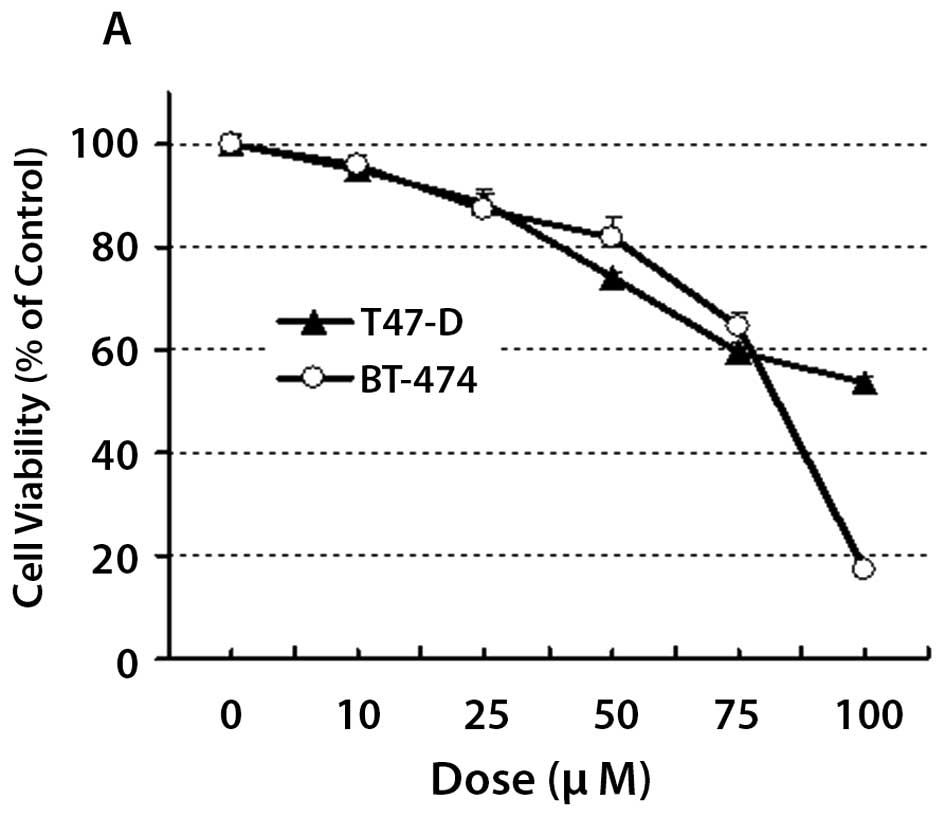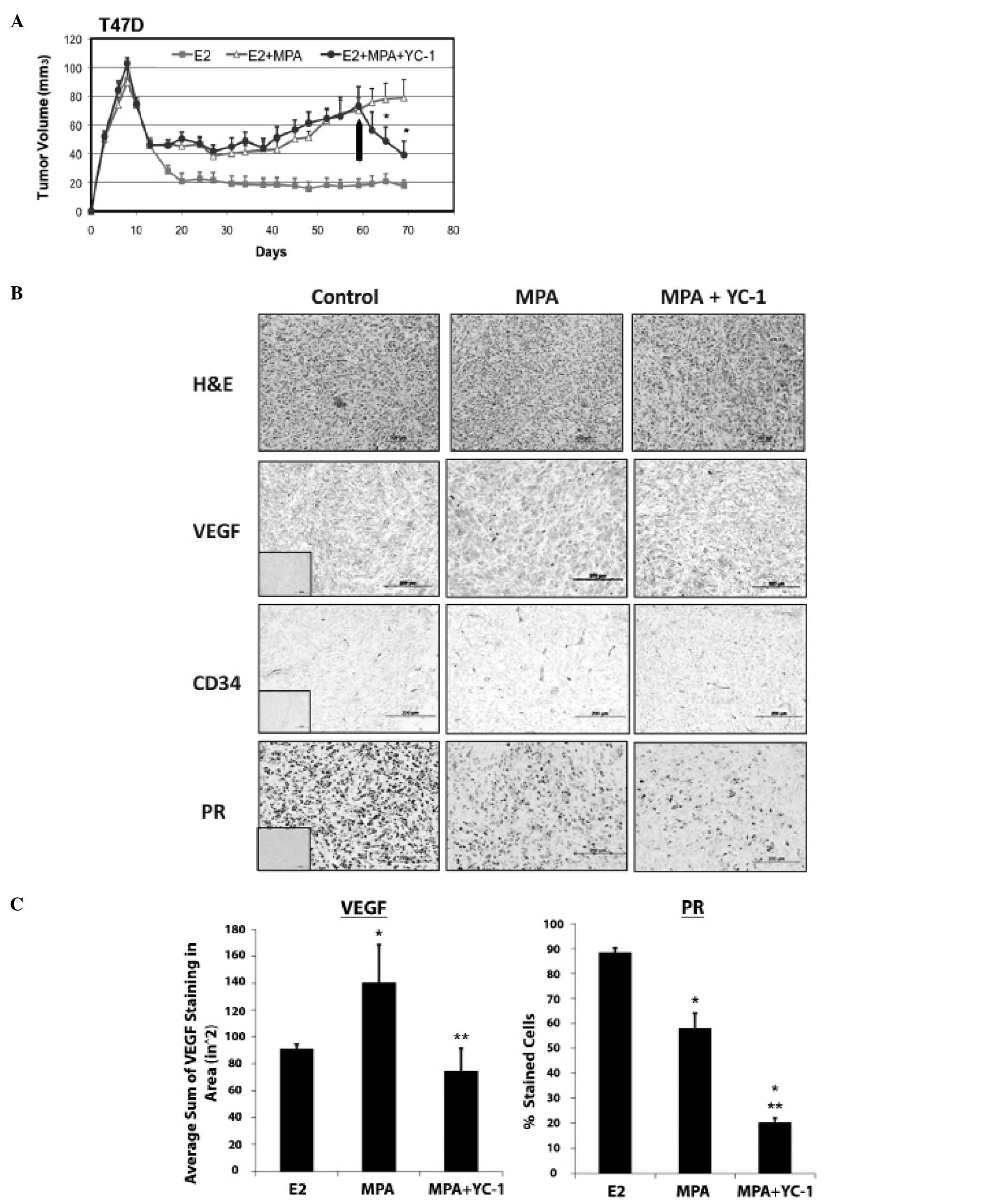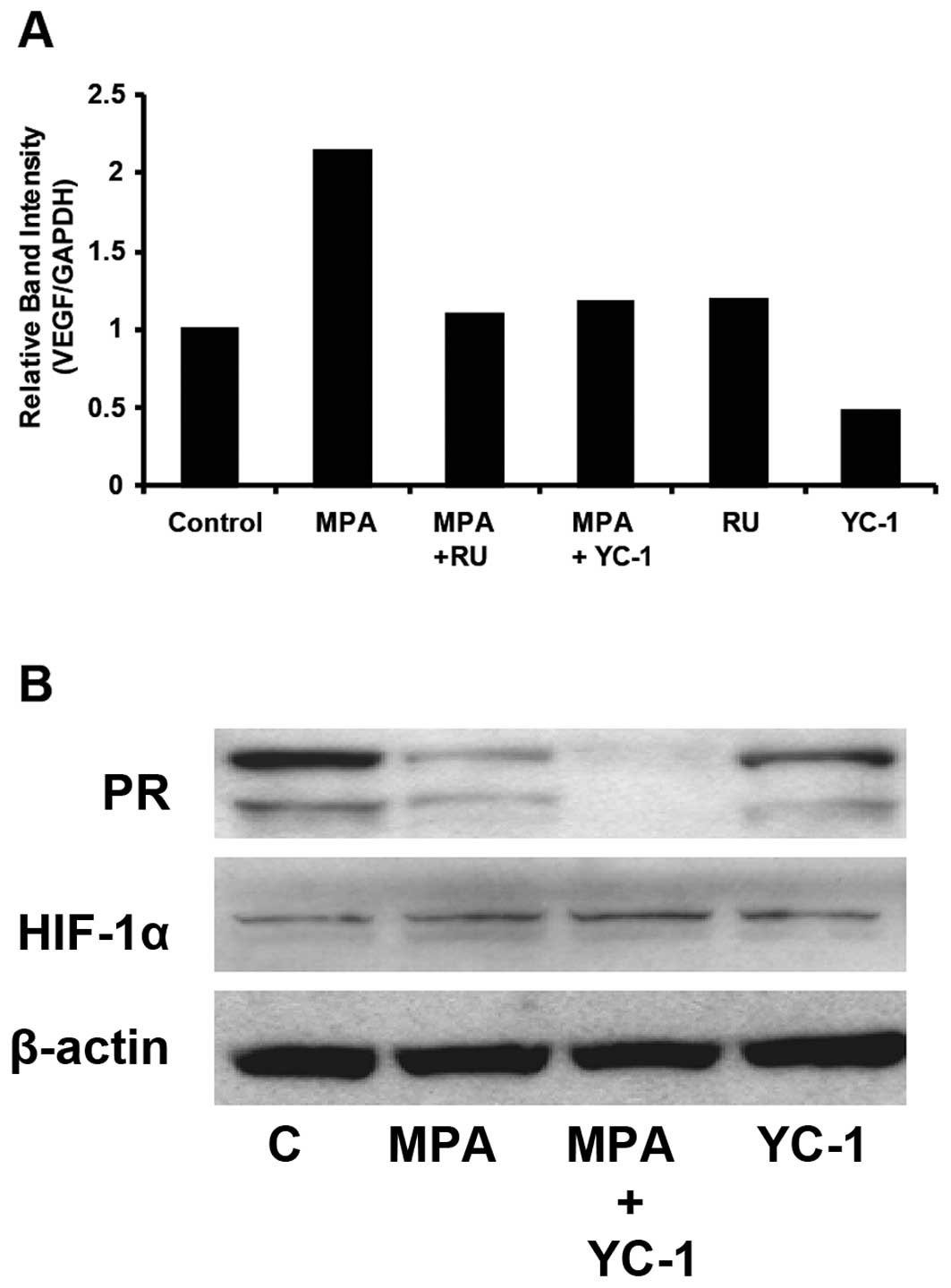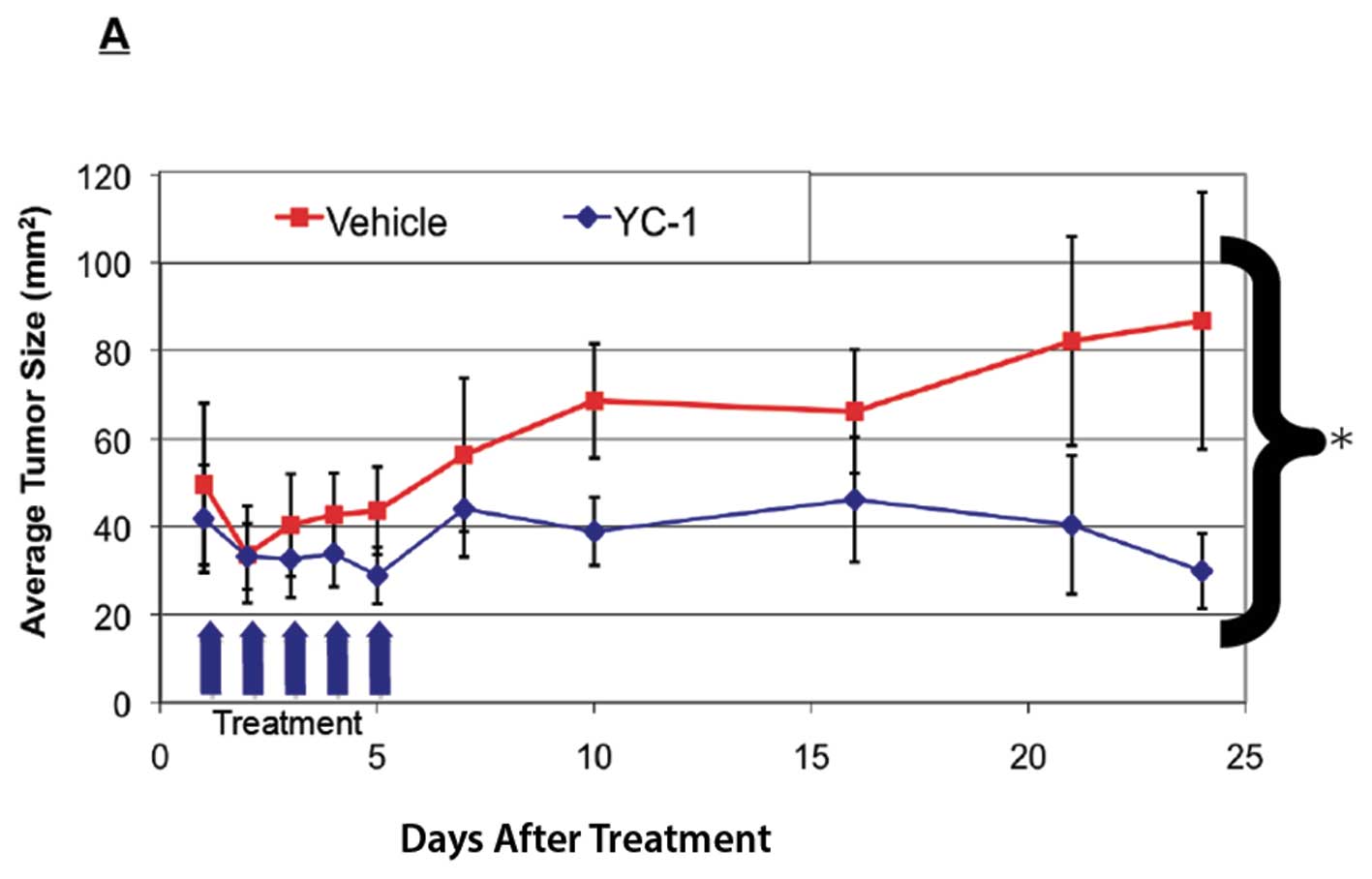|
1.
|
Ross R, Paganini-Hill A and Pike MC:
Effect of hormone replacement therapy on breast cancer risk:
estrogen versus estrogen plus progestin. J Natl Cancer Inst.
92:328–332. 2000. View Article : Google Scholar
|
|
2.
|
Schairer C, Lubin J, Troisi R, Sturgeon S,
Brinton L and Hoover R: Menopausal estrogen and estrogen progestin
replacement therapy and breast cancer risk. JAMA. 283:485–491.
2000. View Article : Google Scholar : PubMed/NCBI
|
|
3.
|
Li CI, Malone KE, Porter PL, Weiss NS,
Tang MT, Cushing-Haugen KL and Daling JR: Relationship between long
durations and different regimens of hormone therapy and risk of
breast cancer. JAMA. 289:3254–3263. 2003. View Article : Google Scholar : PubMed/NCBI
|
|
4.
|
Chlebowski RT, Anderson GL, Gass M, Lane
DS, Aragaki AK, Kuller LH, Manson JE, Stefanick ML, Ockene J, Sarto
GE, Johnson KC, Wactawski-Wende J, Ravdin PM, Schenken R, Hendrix
SL, Rajkovic A, Rohan TE, Yasmeen S and Prentice RL; WHI
Investigators: Estrogen plus progestin and breast cancer incidence
and mortality in postmenopausal women. JAMA. 304:1684–1692. 2010.
View Article : Google Scholar : PubMed/NCBI
|
|
5.
|
Liang Y, Wu J, Stancel GM and Hyder SM:
p53-dependent inhibition of progestin-induced VEGF expression in
human breast cancer cells. J Steroid Biochem Mol Biol. 93:173–182.
2005. View Article : Google Scholar : PubMed/NCBI
|
|
6.
|
Liang Y and Hyder SM: Proliferation of
endothelial and tumor epithelial cells by progestin-induced
vascular endothelial growth factor from human breast cancer cells:
paracrine and autocrine effects. Endocrinology. 146:3632–3641.
2005. View Article : Google Scholar
|
|
7.
|
Benakanakere I, Besch-Williford C, Schnell
J, Brandt S, Ellersieck MR, Molinolo A and Hyder SM: Natural and
synthetic progestins accelerate
7,12-dimethylbenz[a]anthracene-initiated mammary tumors and
increase angiogenesis in Sprague-Dawley rats. Clin Cancer Res.
12:4062–4071. 2006.PubMed/NCBI
|
|
8.
|
Liang Y, Besch-Williford C, Brekken RA and
Hyder SM: Progestin-dependent progression of human breast tumor
xenografts: a novel model for evaluating antitumor theraputics.
Cancer Res. 67:9929–9936. 2007. View Article : Google Scholar : PubMed/NCBI
|
|
9.
|
Horwitz K: The molecular biology of
RU-486. Is there a role for anti-progestins in the treatment of
breast cancer? Endocr Rev. 12:146–163. 1992.PubMed/NCBI
|
|
10.
|
Otrock ZK, Hatoum HA, Awada AH, Ishak RS
and Shamseddine AI: Hypoxia-inducible factor in cancer
angiogenesis: structure, regulation and clinical perspectives. Crit
Rev Oncol Hematol. 70:93–102. 2009. View Article : Google Scholar : PubMed/NCBI
|
|
11.
|
Carmeliet P, Dor Y, Herbert J-M, Fukumura
D, Brusselmans K, Dewerchin M, Neeman M, Bono F, Abramovitch R,
Maxwell P, Koch CJ, Ratcliffe P, Moons L, Jain RK, Collen D and
Keshet E: Role of HIF-1[alpha] in hypoxia-mediated apoptosis, cell
proliferation and tumour angiogenesis. Nature. 394:485–490.
1998.
|
|
12.
|
Forsythe JA, Jiang BH, Iyer NV, Agani F,
Leung SW, Koos RD and Semenza GL: Activation of vascular
endothelial growth factor gene transcription by hypoxia-inducible
factor 1. Mol Cell Biol. 16:4604–4613. 1996.PubMed/NCBI
|
|
13.
|
Shimizu T and Miyamoto A: Progesterone
induces the expression of vascular endothelial growth factor (VEGF)
120 and Flk-1, its receptor, in bovine granulose cells. Anim Reprod
Sci. 102:228–237. 2007. View Article : Google Scholar : PubMed/NCBI
|
|
14.
|
Semenza GL: HIF-1: using two hands to flip
the angiogenic switch. Cancer Metastasis Rev. 19:59–65. 2000.
View Article : Google Scholar : PubMed/NCBI
|
|
15.
|
Chun YS, Yeo EJ, Choi E, Teng CM, Bae JM,
Kim MS and Park JW: Inhibitory effect of YC-1 on the hypoxic
induction of erythropoietin and vascular endothelial growth factor
in Hep3B cells. Biochem Pharmacol. 61:947–954. 2001. View Article : Google Scholar : PubMed/NCBI
|
|
16.
|
Tulis DA, Durante W, Peyton KJ, Chapman
GB, Evans AJ and Schafer AI: YC-1, a benzyl indazole derivative,
stimulates vascular cGMP and inhibits neointima formation. Biochem
Biophys Res Commun. 279:646–652. 2000. View Article : Google Scholar : PubMed/NCBI
|
|
17.
|
Huang YT, Pan SL, Guh JH, Chang YL, Lee
FY, Kuo SC and Teng CM: YC-1 suppresses constitutive nuclear
factor-kappaB activation and induces apoptosis in human prostate
cancer cells. Mol Cancer Ther. 4:1628–1635. 2005. View Article : Google Scholar
|
|
18.
|
Yeo E-J, Chun YS, Cho YS, Kim J, Lee J-C,
Kim M-S and Park J-W: YC-1: A potential anticancer drug targeting
hypoxiainducible factor 1. J Natl Cancer Inst. 95:516–525. 2003.
View Article : Google Scholar : PubMed/NCBI
|
|
19.
|
Rubinstein LV, Shoemaker RH, Paull KD,
Simon RM, Tosini S, Skehan P, Scudiero DA, Monks A and Boyd MR:
Comparison of in vitro anticancer-drug-screening data generated
with a tetrazolium assay versus a protein assay against a diverse
panel of human tumor cell lines. J Natl Cancer Inst. 82:1113–1118.
1990. View Article : Google Scholar : PubMed/NCBI
|
|
20.
|
Skehan P, Storeng R, Scudiero D, Monks A,
McMahon J, Vistica D, Warren JT, Bokesch H, Kenney S and Boyd MR:
New colorimetric cytotoxicity assay for anticancer-drug screening.
J Natl Cancer Inst. 82:1107–1112. 1990. View Article : Google Scholar : PubMed/NCBI
|
|
21.
|
Carroll CE, Ellersieck MR and Hyder SM:
Curcumin inhibits MPA-induced secretion of VEGF from T47-D human
breast cancer cells. Menopause. 15:570–574. 2008. View Article : Google Scholar
|
|
22.
|
Hyder S, Murthry L and Stancel GM:
Progestin regulation of vascular endothelial growth factor in human
breast cancer cells. Cancer Res. 58:392–395. 1998.PubMed/NCBI
|
|
23.
|
Mafuvadze B, Benakanakere I and Hyder SM:
Apigenin blocks induction of vascular endothelial growth factor
mRNA and protein in progestin-treated human breast cancer cells.
Menopause. 17:1055–1063. 2010. View Article : Google Scholar : PubMed/NCBI
|
|
24.
|
Benakanakere I, Besch-Williford C,
Ellersieck MR and Hyder SM: Regression of progestin-accelerated
7,12-dimethylbenz[a] anthracene-induced mammary tumors in
Sprague-Dawley rats by p53 reactivation and induction of massive
apoptosis: a pilot study. Endocr Relat Cancer. 16:85–98.
2009.PubMed/NCBI
|
|
25.
|
Conover W and Iman RL: Rank
transformations as a bridge between parametric and nonparametric
statistics. Am Stat. 35:124–129. 1981.
|
|
26.
|
Chew V: Comparison among treatment means
and analysis of variance. Agricultural Research Service, USDA
(ARS/H/6 Report); Washington, DC: pp. 32–35. 1977
|
|
27.
|
Liang Y, Benakanakere I, Besch-Williford
C, Hyder RS, Ellersieck MR and Hyder SM: Synthetic progestins
induce growth and metastasis of BT-474 human breast cancer
xenografts in nude mice. Menopause. 17:1040–1047. 2010. View Article : Google Scholar : PubMed/NCBI
|
|
28.
|
Dennis AP, Lonard DM, Nawaz Z and O’Malley
BW: Inhibition of the 26S proteasome blocks progesterone
receptor-dependent transcription through failed recruitment of RNA
polymerase II. J Steroid Biochem Mol Biol. 94:337–346. 2005.
View Article : Google Scholar
|
|
29.
|
Hyder SM, Chiappetta C and Stancel GM:
Pharmacological and endogenous progestins induce vascular
endothelial growth factor expression in human breast cancer cells.
Int J Cancer. 92:469–473. 2001. View Article : Google Scholar : PubMed/NCBI
|
|
30.
|
Rundqvist H and Johnson RS: Hypoxia and
metastasis in breast cancer. Curr Top Microbiol Immunol.
345:121–139. 2010.PubMed/NCBI
|
|
31.
|
Kazi A, Jones JM and Koos RD: Chromatin
immunoprecipitation analysis of gene expression in the rat uterus
in vivo: estrogen-induced recruitment of both estrogen receptor α
and hypoxia-inducible factor 1 to the vascular endothelial growth
factor promoter. Mol Endocrinol. 19:2006.–2019. 2005.
|
|
32.
|
Pan SL, Guh JH, Peng CY, Wang SW, Chang
YL, Cheng FC, Chang JH, Kuo SC, Lee FY and Teng CM: YC-1
[3-(5′-hydroxymethyl-2′-furyl)-1-benzyindazole] inhibits
endothelial cell functions induced by angiogenic factors in vitro
and angiogenesis in vivo models. J Pharmacol Exp Ther. 314:35–42.
2005.
|
|
33.
|
Liang Y, Besch-Williford C, Benakanakere
I, Thorpe PE and Hyder SM: Targeting mutant p53 protein and the
tumor vasculature: an effective combination therapy for advanced
breast tumors. Breast Cancer Res Treat. 125:407–420. 2010.
View Article : Google Scholar : PubMed/NCBI
|


















